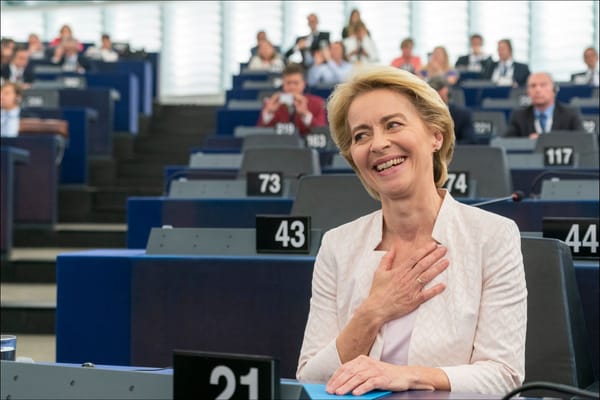Much as Napoleon paid dearly for his arrogance in waging war in Russia in wintertime, so today’s European leaders will soon come to regret taking a gung-ho, hyper-ideological approach to the Russo-Ukrainian War while giving scant thought to economic reality.
On Feb. 24, European Commission President Ursula von der Leyen announced “massive” sanctions against Russia in response to the invasion of Ukraine. “We will target strategic sectors of the Russian economy by blocking their access to technologies and markets that are key for Russia,” she vowed. “We will weaken Russia’s economic base and its capacity to modernize.”
Few questioned von der Leyen’s strategy in those heady days of war mobilization. European editorial pages soon began touting the impending collapse of the Russian economy and, with it, Vladimir Putin’s government. In March, French Finance Minister Bruno Le Maire boasted that the balance of power in the sanctions stand-off was “totally” in favor of the European Union, which was “in the process of discovering its economic power.”
To anyone familiar with the Russian-EU trade relationship, this rhetoric was nothing short of delusional. For one thing, the European Union runs a consistent trade deficit with Russia. In the first four months of 2021, the deficit added up to €14.7 billion ($15 billion). The only country the EU ran a larger trade deficit with was China. So even at a glance, the triumphalism in Brussels, Paris, and Berlin was misplaced.
